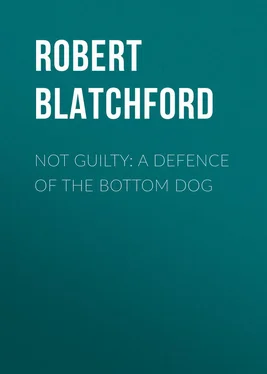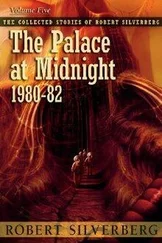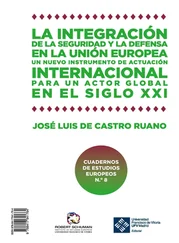Robert Blatchford - Not Guilty - A Defence of the Bottom Dog
Здесь есть возможность читать онлайн «Robert Blatchford - Not Guilty - A Defence of the Bottom Dog» — ознакомительный отрывок электронной книги совершенно бесплатно, а после прочтения отрывка купить полную версию. В некоторых случаях можно слушать аудио, скачать через торрент в формате fb2 и присутствует краткое содержание. Жанр: foreign_antique, foreign_prose, на английском языке. Описание произведения, (предисловие) а так же отзывы посетителей доступны на портале библиотеки ЛибКат.
- Название:Not Guilty: A Defence of the Bottom Dog
- Автор:
- Жанр:
- Год:неизвестен
- ISBN:нет данных
- Рейтинг книги:3 / 5. Голосов: 1
-
Избранное:Добавить в избранное
- Отзывы:
-
Ваша оценка:
- 60
- 1
- 2
- 3
- 4
- 5
Not Guilty: A Defence of the Bottom Dog: краткое содержание, описание и аннотация
Предлагаем к чтению аннотацию, описание, краткое содержание или предисловие (зависит от того, что написал сам автор книги «Not Guilty: A Defence of the Bottom Dog»). Если вы не нашли необходимую информацию о книге — напишите в комментариях, мы постараемся отыскать её.
Not Guilty: A Defence of the Bottom Dog — читать онлайн ознакомительный отрывок
Ниже представлен текст книги, разбитый по страницам. Система сохранения места последней прочитанной страницы, позволяет с удобством читать онлайн бесплатно книгу «Not Guilty: A Defence of the Bottom Dog», без необходимости каждый раз заново искать на чём Вы остановились. Поставьте закладку, и сможете в любой момент перейти на страницу, на которой закончили чтение.
Интервал:
Закладка:
After describing the helplessness of the human baby, he continues thus:
Yet, this is the creature which has spread over the earth so that he numbers some fifteen hundred millions to-day. He is the "lord of creation," master of creatures bigger, stronger, fleeter, longer-lived than himself. The earth is his and the fulness thereof. Yet without love not one single specimen of him has a chance of reaching maturity, or even surviving for a week. Verily love is the greatest thing in the world.
Well, upon this subject of the parental origin of altruism, Prince Kropotkin throws another light. First, alluding to Darwin's cautious handling of the subject of the maternal origin of social feelings, Prince Kropotkin, quotes Darwin's own remarkable comment, thus:
This caution was fully justified, because in other places he pointed out that the social instinct must be a separate instinct in itself , different from the others – an instinct which has been developed by natural selection for its own sake , as it was useful for the well-being and preservation of the species. It is so fundamental, that when it runs against another instinct, even one so strong as the attachment of the parents to their offspring, it often takes the upper hand. Birds, when the time has come for their autumn migration, will leave behind their tender young, not yet old enough for a prolonged flight, and follow their comrades.
He then offers the following suggestion:
To this striking illustration I may also add that the social instinct is strongly developed with many lower animals, such as the land-crabs, or the Molucca crab; as also with certain fishes, with whom it hardly could be considered as an extension of the filial or parental feelings. In these cases it appears rather an extension of the brotherly or sisterly relations or feelings of comradeship , which probably develop each time that a considerable number of young animals, having been hatched at a given place and at a given moment, continue to live together – whether they are with their parents or not. It would seem, therefore, more correct to consider the social and the parental instincts as two closely connected instincts, of which the former is perhaps the earlier, and therefore the stronger, and which both go hand in hand in the evolution of the animal world. Both are favoured by natural selection, which as soon as they come into conflict keeps the balance between the two, for the ultimate good of the species.
To sum up all these ideas. We find it suggested that the social feelings from which morality sprang, were partly inherited by man from his animal ancestors, partly imitated from observation of the animals he knew so well in his wild life.
And we find it suggested that these social feelings probably began in the love of animals for their young, and in the brotherhood and comradeship of the young for each other.
It was the social feelings of men that made their Bibles: the Bibles did not make the social feelings.
Morality is the result of evolution, not of revelation.
CHAPTER FIVE – THE ANCESTRAL STRUGGLE WITHIN US
I HAVE spoken of the "nature" handed down to us by our fore-parents. I might have said "natures," for our inheritance, being not from one, but from many, is not simple, but compound.
We too commonly think of a man as an Englishman or a Frenchman; as a Londoner or a Yorkshireman; as good or bad.
We too commonly think of a man as one person, instead of as a mixture of many persons. As though John Smith were all John Smith, and always John Smith.
There is no such thing as an unmixed Englishman, Irishman, or Yorkshireman.
There is no such thing as an unmixed John Smith.
Englishmen are bred from the Ancient Briton, from the Roman, from the Piets and Scots, from the Saxons, the Danes, the Norwegians, the Normans, the French. All these varied and antagonistic bloods were mixed in centuries ago.
Since then the mixing has gone on, plentifully varied by intermarriage with Irish, Scots, Dutch, Germans, Belgians, French, Italians, Poles, and Spaniards. We have had refugees and immigrants from all parts of Europe. We have given homes to the Huguenots, and the Emigrés from France, to the Lollards and Lutherans from the Netherlands, to crowding fugitives from Russia, Holland, Hungary, Italy, and Greece. We have absorbed these foreigners and taken them into our blood. And the descendants of all these mixed races are called Englishmen.
The Londoner is a mixture of all those races, and more. From every part of England, Ireland, Scotland, Wales; from most parts of Europe, from many parts of America and Asia, and even Africa, streams of foreign blood have flowed in to make the Londoner.
In Yorkshire there are several distinct races, though none of them are pure. There is one Yorkshire type bearing marks of descent from the Norsemen, another bearing marks of descent from the Flemish and French immigrants, and another from the Normandy invaders. I have seen Vikings, Belgians, and Normans all playing cricket in the Yorkshire County team.
In Ireland there are Irishmen from Denmark and Norway, Irishmen from Ancient Mongolia, and, especially in Kerry, Irishmen who seem to be of almost pure Iberian type.
The Iberian Irishman is short, dark, aquiline, and sardonic, with black hair and eyes, and a moustache more like a Tartar's than a European's. The Viking Irishman is big and burly, with blue or grey eyes, and reddish hair and beard; the difference between these two types is as great as that between a Saxon and a Spaniard.
One of these Irish Iberians marries a Yorkshire Dane. Their son marries the daughter of a Lancashire Belgian and an Ancient Briton from Flint; and their children are English.
As I said just now, we think of John Smith as all John Smith and always John Smith.
But John is a mixture of millions of men and women, many of them as different from each other as John Ridd is different from Dick Swiveller, or as Diana of the Crossways is different from Betsy Trotwood. And these uncountable and conflicting natures are not extinct: they are alive and busy in the motley jumble we call John Smith.
John is not all John. He is, a great deal of him, Roman soldier, Ancient Briton, Viking pirate, Flemish weaver, Cornish fisherman, Lowland scholar, Irish grazier, London chorus girl, Yorkshire spinner, Welsh dairymaid, and a host of other gentle and simple, wild and tame, gay and grave, sweet and sour, fickle and constant, lovable and repellent ancestors; from his great-great-grandparent, the hairy treeman, with flat feet and club like a young larch, to his respectable father, the white-fronted, silk-hatted clerk in the Pudsey Penny Savings Bank.
And, being as he is, not all John Smith, but rather the knotted, crossed, and tangled mixture of Johns and Marys, and Smiths and Browns and Robinsons, that has been growing more dense and intricate for tens of thousands of years, how can we expect our good John to be always the same John?
We know John is many Johns in the course of a summer's day. We have seen him, possibly, skip back to the cave-man in a spasm of rage, glow with the tenderness of the French lady who died of the plague in the Fourteenth Century, and then smile the smile of the merry young soldier who was shot at Dettingen – all in the time it takes him to clench and unclench his hand, or to feel in his pocket for a penny, or to flash a glance at a pretty face in the crowd.
John Smith is not English, nor Yorkshire; but human. He is not one man; but many men, and, which counts for more, many women.
And how can we say of John Smith that he is "good" or "bad"? It is like saying of a bottle of beads, mixed of fifty colours, that it is red, or blue. As John's ancestors were made up of good and bad, and as he is made up of them, so John is good and bad in stripes or patches: is good and bad by turns.
Читать дальшеИнтервал:
Закладка:
Похожие книги на «Not Guilty: A Defence of the Bottom Dog»
Представляем Вашему вниманию похожие книги на «Not Guilty: A Defence of the Bottom Dog» списком для выбора. Мы отобрали схожую по названию и смыслу литературу в надежде предоставить читателям больше вариантов отыскать новые, интересные, ещё непрочитанные произведения.
Обсуждение, отзывы о книге «Not Guilty: A Defence of the Bottom Dog» и просто собственные мнения читателей. Оставьте ваши комментарии, напишите, что Вы думаете о произведении, его смысле или главных героях. Укажите что конкретно понравилось, а что нет, и почему Вы так считаете.












